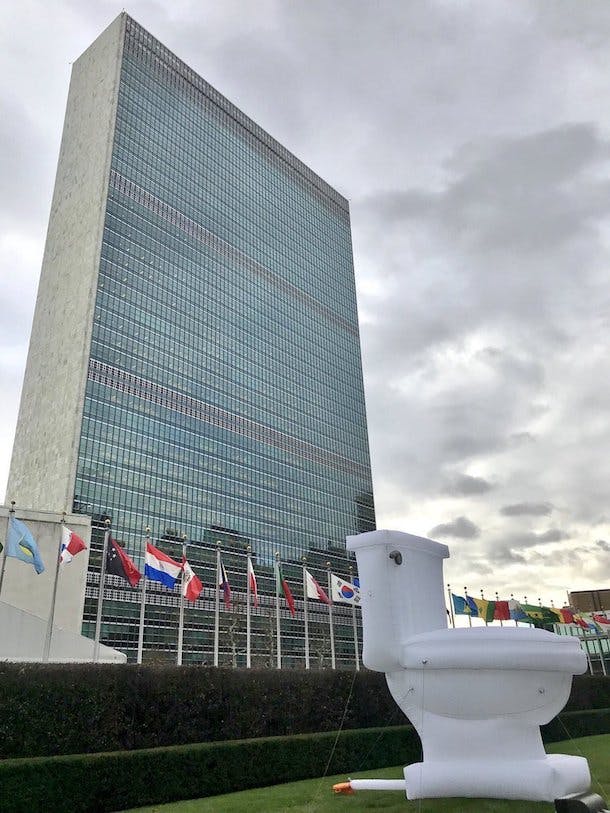
While many might not realize November 19 is World Toilet Day, the international day serves as a powerful reminder that 2.3 billion people around the world lack access to a basic toilet. Safe sanitation for all is critical to good health everywhere and must remain a global development priority.
It’s shocking to contemplate that in our modern world, nearly one-third of humanity does not have a clean place to use the bathroom. Toilets might seem taboo, but without them, open-air waste can spread deadly disease, particularly among vulnerable children. This year’s World Toilet Day theme is Toilets and Wastewater, emphasizing the importance of managing fecal waste safely along the sanitation service chain. When including the indicator of safely managed sanitation services, the number of people without access doubles from 2.3 billion to 4.5 billion.
Most Americans simply flush and forget it. But in communities around the globe, untreated wastewater leads to rivers and coasts that cannot be safely fished in or enjoyed. The safe disposal or transport of human waste is critical to achieving Sustainable Development Goal 6, sustainable management of water and sanitation for all. Plus, treated wastewater has potential for reuse as an affordable, sustainable source of energy and non-potable water for gardening or washing.
Global leaders and United Nations Foundation Deputy CEO Elizabeth Cousens met at the United Nations on Monday to discuss sanitation challenges at an event hosted by the Permanent Mission of Singapore, the International Chamber of Commerce, UNICEF, and UN Water, and co-sponsored by the permanent missions of Australia, Bangladesh, Costa Rica, Hungary, India, the Netherlands, Senegal, and the Slovak Republic. The group examined a new World Health Organization report, “Progress on Drinking Water, Sanitation and Hygiene: 2017 Update and Sustainable Development Goal Baselines.” World Toilet Day also sets the stage for next July’s High-level Political Forum to review SDG 6, among others.
Safe sanitation is of particular concern in India, where just 21% of wastewater is treated, and more than half of the world’s open defecation happens. Banka BioLoo is an innovative, woman-led company that is meeting this challenge in spectacularly creative fashion. The BioLoo is a special device that can be installed to any form of existing toilet and uses anaerobic bacteria to convert human waste into clean, non-potable water as well as biogas for lighting, heating, and cooking. So far there are 6,000 BioLoos in schools, trains, worksites, and homes across India, giving 70,000 girls and adolescents access to a clean, safe restroom. This has boosted school attendance and reduced dropout rates. And BioLoos have recycled more than 100,000 liters of water that can safely be used for gardening and non-drinking purposes. To learn more, see this EveryWoman Every Child case study on Banka BioLoo.
Access to safe sanitation is not a luxury. It is a human necessity without which our dignity, health, and well-being are completely compromised. This is a crisis and challenge that we should all feel compelled to solve, urgently and without delay.



 View All Blog Posts
View All Blog Posts